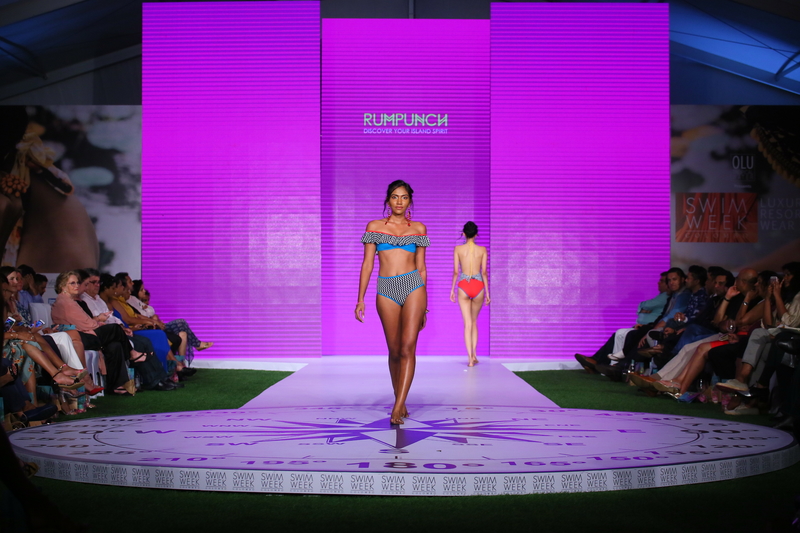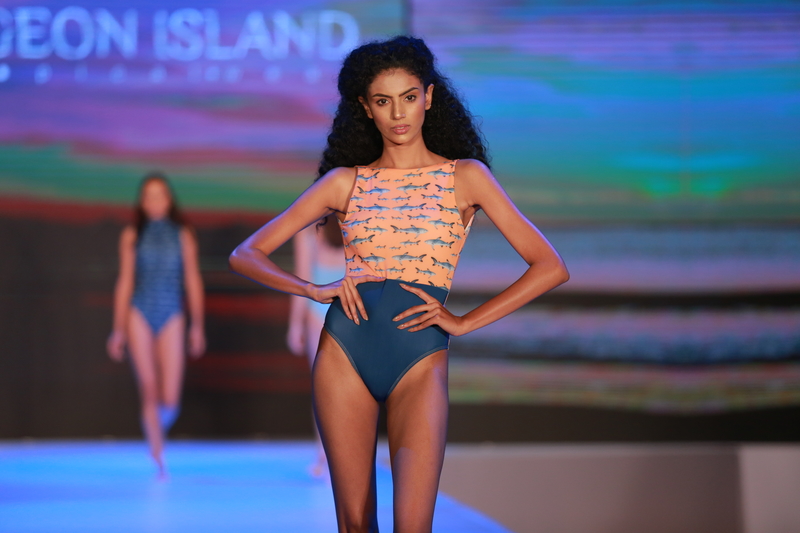IMPACT & MAGNITUDE OF SWIM WEEK COLOMBO
Fazeena Rajabdeen

With unique design motifs, structures and silhouettes emerging every year, Swim Week Colombo, is an illustrious platform strategically designed exclusively to showcase swimwear and resort wear. As Sri Lanka continues its fame for strengthening manufacturing capabilities in a sustainable environment with close proximity to critical markets across Asia, Swim Week Colombo has created a noteworthy impact in furthering and promoting design sensibilities while facilitating commerce and retail opportunities for local and international designers. In conversation with Swim Week Colombo’s Chief Executive Officer and Director Fazeena Rajabdeen, we delved into the manner in which the platform approaches sustainability and responsibility in fashion, while dissecting the manner through which it has expanded its horizons over the years in the local and global fashion industries.

Q | What is the vision of Swim Week Colombo?
A | Swim Week set its vision and agenda five years ago in working towards the goal of being the leading trendsetter for swim and resort wear in the region. We pursued this vision given the country’s excellence in manufacturing and geographic vantage. When we launched Swim Week Colombo in 2015, there were just one or two swimwear brands in Sri Lanka, and now we are proud to note that we have at least fifteen established designers who focus on swim, resort and luxury wear, who have been nurtured through the platform. I think we’re making an important statement globally. Sri Lanka has almost taken for granted the fact that we can manufacture in eco-friendly, sustainable systems with suppliers who can provide such raw material, while the international fashion industry finds this challenging. We have an entire supply chain, strength of manufacturing and designers with great capabilities in swim and resort wear. We are so used to that culture. That is why Swim Week Colombo has gained this momentum in such a short span internationally as we are seen as the next big platform, which can provide them with the entire eco-system from manufacturing to design, and retail sensibilities which are relevant to this landscape.
Q | The Responsible Fashion Summit, organized by Colombo Fashion Week, is a significant component of the platform. Panelists discuss the manner in which sustainability and fashion merge with designing, sourcing and manufacturing. How is the Summit structured to strengthen the agenda of Swim Week Colombo?
A | Sri Lanka takes the lead in the region in creating real stories and solutions for the issues the global apparel industry is facing. The Responsible Fashion Movement and Summit is paving the way to showcase solutions that Sri Lanka and the region are creating which will impact the fashion supply chain. It also showcases Sri Lanka as the country that is conscious and responsible while presenting itself as an ethical fashion sourcing destination. Us Sri Lankans walk the talk when it comes to responsible fashion. The agenda for the Summit is to spread this message to other parts of the world who may not have the practical capabilities that we have in terms of responsible fashion. For example, here, we turn plastic into fabric in tons. The nature of passing down or recycling clothes comes naturally to us. Therefore, the Summit aims to infiltrate design and industrial minds with the knowledge of the role one’s conscience has in creating impact in the process. This is the way we go about our responsible goals, as a result we want to highlight the impact it can potentially create in transforming industries further.
Q | In your opinion, who are the designers who have embraced this idea of sustainability and responsibility in fashion with much integrity?
A | I really think all our designers have embraced sustainable and responsible fashion in some way, as this has been one of the goals, and the direction the platform is taking. We improve the yardstick year after year, and we accept fabrics that completely come from sustainable methods. We have had some brands who have completely immersed in a sustainable backstory, one of which is Pigeon Island, focussing on marine conservation. Conscience, launched ten years ago with the concept of garments without guilt also revolves around ethical fashion. Today, most of the designer wear brands from MAUS, Meraki and Buddhi Batiks have made it a vision for themselves to create and produce in a sustainable manner including from packaging to fabrics. This type of commitment can only come within the brand’s core principles and we provide the platform to showcase it to the larger audience.

Click below to read the full article.


